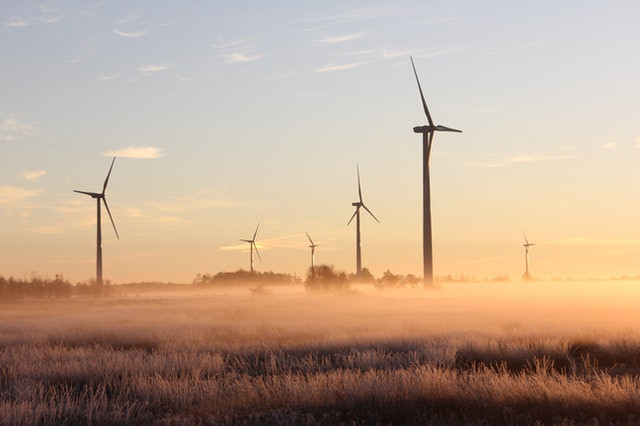
5 Steps to a More Sustainable 2020
2nd Feb 2020
The foodservice industry, while often given a negative reputation, has some fast-developing positives. The conversation around the impacts humans are having on the environment – whether through climate change, plastic pollution, species extinction, or something else – is growing more urgent. We – as individuals and collectives – have the power to take positive action and, in fact, it is crucial that we do so. As individuals, we have the power to lower our carbon footprint, spark constructive conversations, and otherwise reduce negative environmental impacts. As part of the business community, we can improve the system more broadly through actions that flow on to customers and clients. Below, we have 5 ways that you can make a difference in 2020.

1. Choose Renewable
Plastic alternatives made out of renewable resources have a lower carbon footprint and take less time to break down than their conventional counterparts. Conventional plastic packaging – made from non-renewable fossil fuels – when used in foodservice packaging has a lifespan of a few minutes. A few minutes of use, and then hundreds of years to break down. Often this breakdown is into microplastics, which have a plethora of issues themselves. Refuse conventional plastic packaging and go for plant-based packaging instead. BioPak's packaging is made from sugarcane waste (bagasse), trees grown sustainably, and other rapidly renewable bioplastic materials. They are responsibly sources and have a lower carbon footprint than the conventional plastic alternative. Read here to find out more about sustainable plastic alternatives.
2. Go Carbon Neutral
By choosing carbon neutral businesses, or going carbon neutral yourself, you can lower your carbon footprint and make a difference. Carbon dioxide (CO2) emissions have increased by nearly 50% globally since 1990. Decreasing these emissions is crucial to prevent situations the likes of which we have seen around the country these past months. As an individual, though, what can you do? Driving less or taking public transport is a good start, but what we often forget is that every single product we use has a carbon footprint which contributes to the carbon footprint of the individual using the product. To reduce this carbon footprint, try purchasing from certified carbon neutral businesses or choosing carbon neutral products. And, if you're a business, why not choose to go carbon neutral yourself? You are helping the planet and boosting your business at the same time. BioPak packaging is certified carbon neutral, which means they have purchased carbon credits to offset any carbon produced during production and disposal of packaging. Read here to find out more about being carbon neutral.
3. Start Composting
Organics in landfill release methane as they decompose, a gas which is more than 20 times more potent than CO2. But food is natural, you say. Surely there can be no issue with food waste? Yes. There is. Food waste is the third largest contributor to climate change. When organic products are disposed in landfill, they release methane as they decompose: a gas more than 20 times more potent than CO2. In addition, food residue on recyclables can result in them not being recycled. However, food residue on biodegradable packaging is not a problem for composting, and around Australia organic waste collection is becoming more widely available (slowly: the most innovative work is happening in Canberra). Sending organic waste and compostable packaging to a composting facility rather than landfill means that you will reduce your carbon footprint. Composting creates nutrient-rich compost that helps regenerate soil and improve water retention – also important in a world in which food and water security is becoming more tenuous. If you want to start composting, why not join BioPak's Compost Club? Read here to find out more about how composting works.
4. Choose 'Profit For Purpose' Companies
By voting with your dollar, you can cast a vote for the kind of world you want to live in. One of the most efficient forms of voting is with your dollars. You do it every time you purchase an item of clothing, a meal, an energy company. By supporting purpose-driven businesses, you are voting for a positive change in our communities and for our planet. BioPak is a B Corp and donates 7.5% of all profits to environmental restoration initiatives and community programs. Planet Friendly Packaging also donates a tree per order – every order – to do our bit for climate change and forest restoration. By knowing who you are buying from, you are able to vote with your dollars for a better future in a better world. Read here to find out more about why BioPak is a B Corp, and here to learn about Planet Friendly Packaging's involvement with Rainforest Rescue.
5. Avoid Greenwashing
Without certification, words like 'degradable' or 'eco-friendly' are simply greenwashing. Ever get confused about what exactly 'degradable' means? How about 'biodegradable'? Or 'dissolving', 'eco-friendly', 'sustainable', and the list goes on. These words do mean something – but without certification using them is called greenwashing. By becoming certified, a company proves that they are committed to quality, safety, and sustainability. Certification is a rigorous process: it determines whether a company's products, processes, and social impacts have passed specific performance, sustainability, and quality assurance tests. By backing up your or another company's claims about environmental impact, you can help consumers and businesses shop and sell responsibly. Read here to find out more about what the different sustainability labels mean.
Information taken from BioPak's website. To learn more about the products we sell, click here.
Planet Friendly Packaging acknowledges the traditional custodians of the land on which we work.

